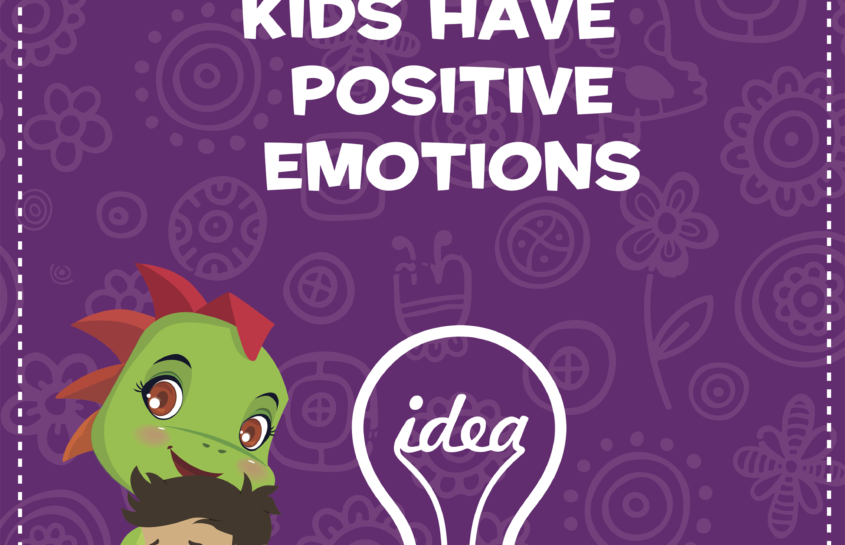Five ideas for boosting positive emotions in children

The first years of your children’s lives are always the hardest. They are filled with tantrums, and sometimes we don’t even know why our kids are upset!
Their feelings often stem from little things that we aren’t aware of, but this isn’t always the case. For infants between the ages of 0 and 5, their focus is on gratification! It is very important that you let your children know how proud they make you!
Maintaining a calm environment filled with positive emotions at home results in a happy infancy, and it contributes significantly to the development of your kids’ talents. In addition to this, children who live in positive environments tend to develop their socio-emotional intelligence to a higher level, which will make it easier for them to regulate their emotions.
Psychologist Martin Seligman, the creator of positive psychology, states in his book The Authentic Joy that developing experiences filled with positive emotion will fuel kids’ growth and motivate their desire to learn.
Five ideas to put into practice

Play with your kids: Seligman doesn’t suggest buying sophisticated toys. Rather, he explains that the experience is what really matters. The pleasure a baby feels from destroying stacked blocks, or from ripping paper without any major restrictions – or even the joy of building marvelous castles with boxes – are a few examples of interactions that we can apply at home. Take your child out, and activate his or her imagination while you play together.
The importance of limits: How should parents place limits? This is a frequently asked question. Martin Seligman believes that there be a balance between what a child can and cannot do, and that parents have to go through the process of auto-regulation to understand which circumstances will require their saying no. Parents tend to confuse annoyance with what is actually dangerous for the child, explains Seligman in his book. He proposes that parents explain to their children why they cannot (or should not) do something, and that circumstances may change in the near future.

Praise and Punishment: Recognize and value your children’s actions and efforts. The recommendation is to praise your children when they do good things, or even if they’ve only made an effort to do something commendable, but the results aren’t all there. This helps children understand their mistakes, and praise will generate positive emotions. What happens if your child did something wrong? Well, you can avoid punishment because there are a lot of different ways to establish limits and correct certain behaviors. Punishment, which provokes fear, is hurtful, and it may impede your child’s growth.
Before bed: Take advantage to those minutes before sleep. Take advantage in establishing a routine with positive dynamics: read stories, go over the good things that happened during the day, and say positive affirmations. These are activities that favor the self esteem of your children, contributes to the development of their positive thoughts, makes them feel sure about themselves, minimizes night fears and connects you like family.

Negotiate: Let’s make a deal! You have probably tried this, and if you have, you have probably noticed that in most cases, this expression generates a positive response. When children feel that the conditions are clear, and when they are aware that a certain behavior can benefit them, they act accordingly. The strategy of the deal can be super useful when it comes to avoiding tantrums, but keep in mind that it’s important not to abuse these deals. You wouldn’t want your kids to take advantage of the situation and make constant negotiations.
